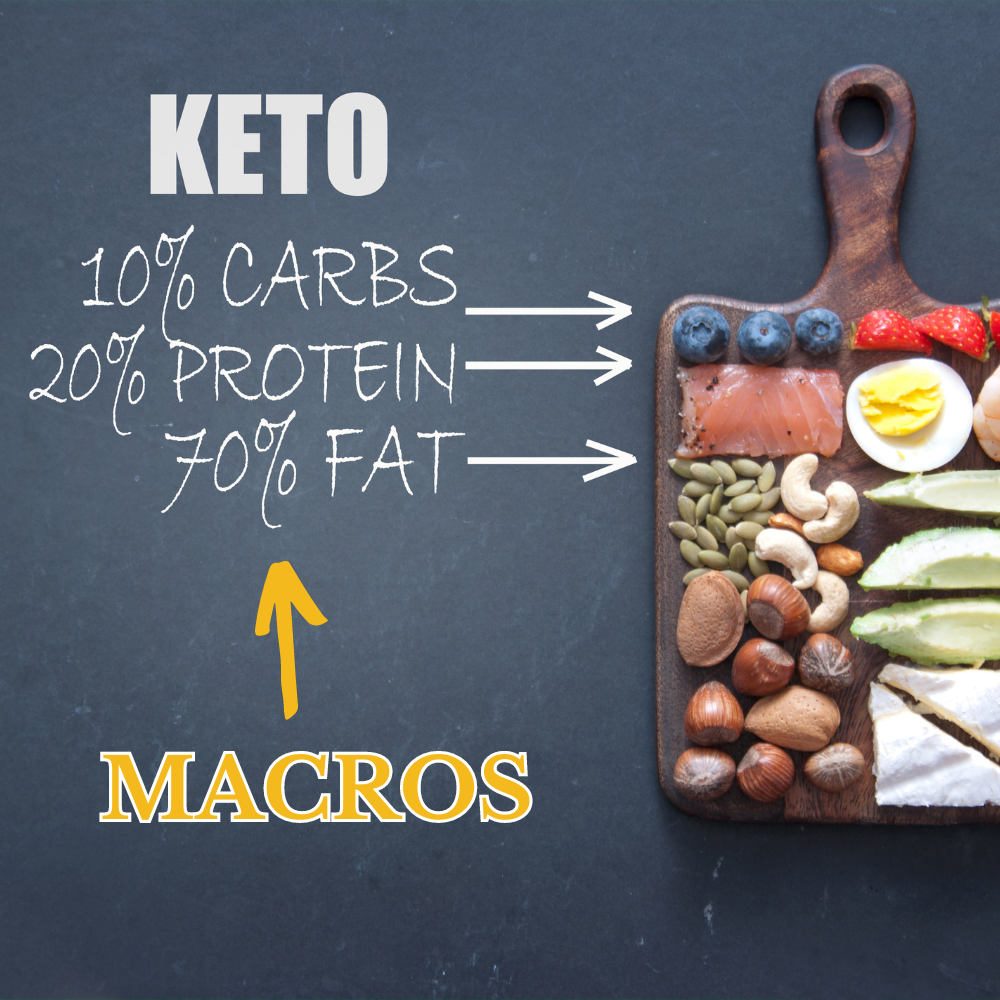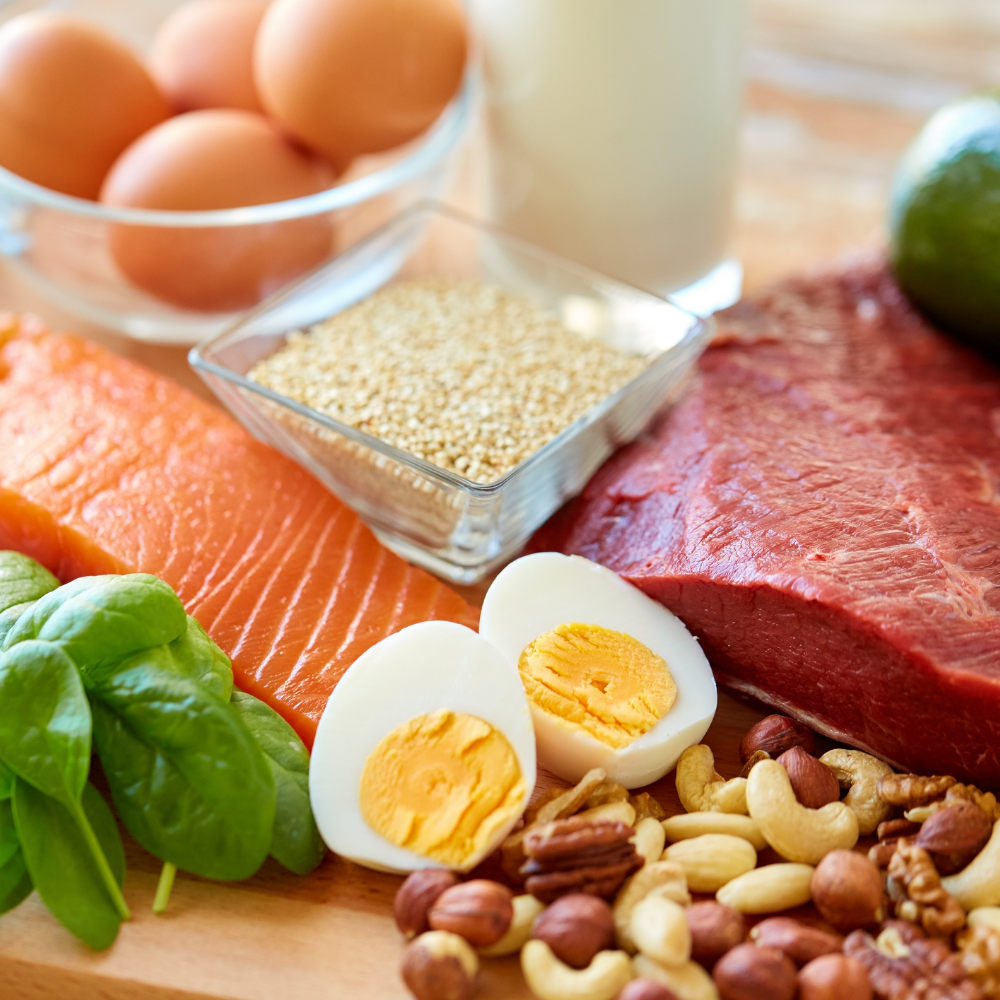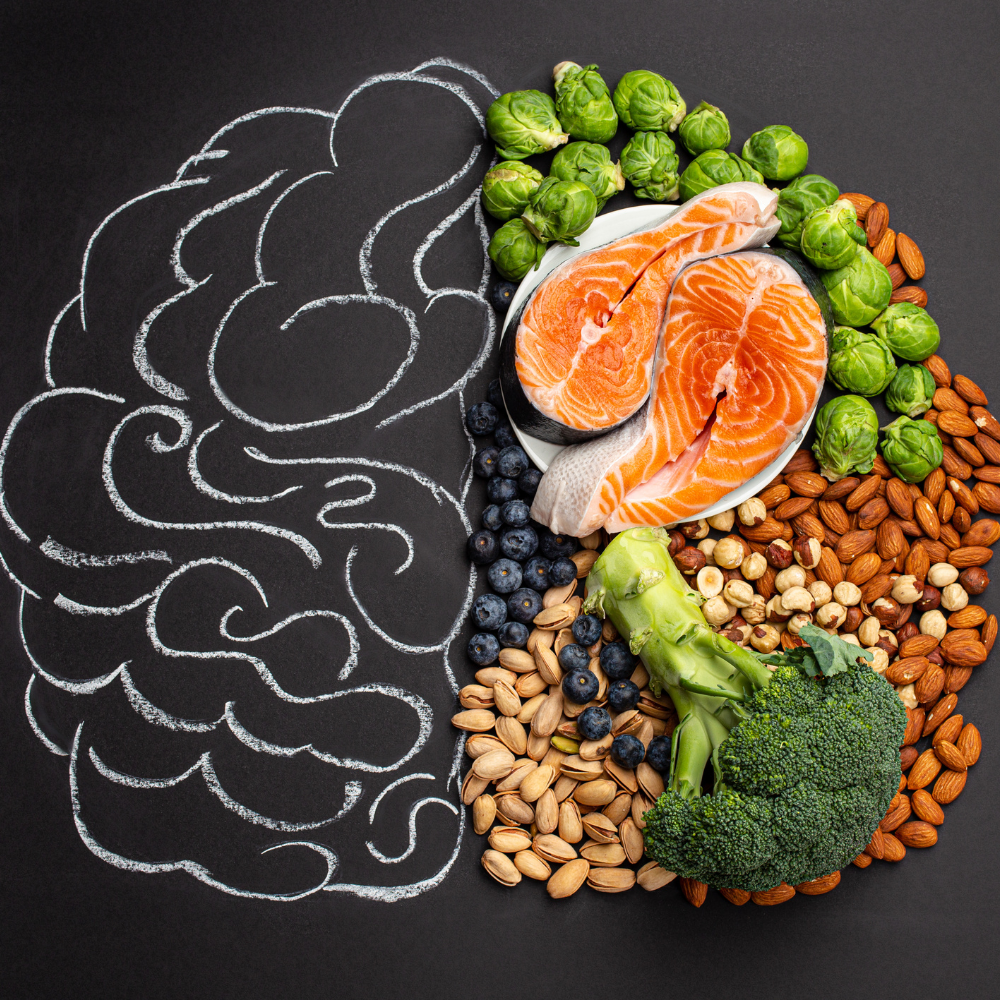Unlocking the Basics of Keto Diet Plan: A Comprehensive Guide

Embarking on a new diet can be a transformative journey, not just for your body but for your overall health and well-being.
The ketogenic, or “keto,” diet has surged in popularity thanks to its potential to help people lose weight and improve their health, by focusing on keto diet plan basics such as restricting net carbs and ensuring adequate protein intake.
This guide is designed to motivate and educate you on the basics of the keto diet plan, ensuring you have the knowledge to start this journey confidently.
Key Takeaways:
- Understanding the core principles of the ketogenic diet and its focus on fats, moderate protein, and very low carbohydrate intake.
- Insights into planning your meals and managing your daily intake to maintain ketosis for optimal results.
- Awareness of potential challenges and how to effectively overcome them to sustain a healthy and effective keto lifestyle.
What is a Low Carb Diet like Keto?
The ketogenic diet revolves around a high fat, moderate protein, and very low carbohydrate intake.
By drastically reducing your carb intake and replacing it with fat, your body enters a metabolic state known as ketosis.
Here, your body becomes incredibly efficient at burning fat for energy, turning fats into ketones in the liver, which can supply energy for the brain.
Ketogenic diets encompass various types, all aiming to induce ketosis for health benefits and effective weight loss.
Ketosis: The Metabolic State of Wonder
Ketosis is a central goal of the keto diet.
Achieving this state means your body has shifted from using carbohydrates as its primary fuel source to burning fat.
This not only aids in significant weight loss but also helps in reducing blood sugar and insulin levels, enhancing overall metabolic health.
Planning Your Keto Meals
Creating a meal plan is crucial when following a keto diet.
Another option to consider is the high protein ketogenic diet (HPKD), which allows for a higher intake of protein, typically involving a ratio of 60% fat, 35% protein, and 5% carbs, offering an alternative for those who may need more protein in their diet.
Start by familiarizing yourself with keto-friendly foods that are rich in healthy fats like olive oil, coconut oil, and avocados, while being low in carbohydrates.
Planning helps in maintaining the right balance of nutrients and avoiding any nutritional deficiencies.
Understanding Macronutrients on Keto

In a typical keto diet plan, about 70-80% of your daily calories should come from fat, about 20% from protein, and as little as 5-10% from carbohydrates.
It’s important to monitor your carbohydrate intake rigorously to stay within this range to maintain ketosis.
Research comparing the ketogenic diet with a low fat diet for weight loss suggests that the keto diet may be as effective, if not slightly more so, for weight loss.
People following a keto diet often lose an average of 2 pounds more than those on a low fat diet, alongside experiencing reductions in diastolic blood pressure and triglyceride levels.
The Importance of Fats in Keto
Fats are the cornerstone of the keto diet, but it's also crucial to monitor your protein intake, ensuring it's low to moderate to maintain ketosis and minimize muscle loss.
You can also check out my post: "What Happens If I Don't Eat Enough Fats On Keto?"
Opt for sources of healthy fats such as olive oil, coconut oil, and full-fat dairy.
These fats help to keep you full and satisfied, reducing the likelihood of overeating or snacking on sugary foods.
Protein: How Much is Enough?

Low carb diets, especially the ketogenic diet, focus on drastically reducing carbohydrate intake and replacing it with fat to achieve a metabolic state known as ketosis.
While keto is a high-fat diet, moderate protein consumption is essential for muscle maintenance and repair.
However, too much protein can be counterproductive as it can lead to gluconeogenesis, where the body converts excess protein into glucose, potentially knocking you out of ketosis.
Carbs: Keeping Them Low
The challenge and essence of the keto diet lie in keeping your carb intake low.
Avoid high carb foods and sugary sweeteners.
Focus on non-starchy vegetables and low-carb fruits to keep your carb intake in check while still enjoying nutritious meals.
While the keto diet is a restrictive diet that limits certain foods, it still offers a variety of nutritious options to maintain a balanced diet.
Keto-Friendly Foods to Enjoy
Embrace foods like hard-boiled eggs, non-starchy veggies, nuts, and seeds.
These not only adhere to the keto guidelines but also help in adding variety and essential nutrients to your diet.
Foods to Avoid on Keto
Stay clear of foods high in carbohydrates such as bread, pasta, rice, and sugary snacks.
These can disrupt the state of ketosis and derail your progress on the diet.
Dealing with the Keto Flu
As your body adjusts to a low carb intake, you might experience the 'keto flu,' characterized by symptoms like headaches, fatigue, and irritability.
These symptoms are temporary, and staying hydrated and maintaining electrolyte balance can help mitigate them.
Supplements to Consider
To counteract potential nutritional deficiencies, consider supplements like magnesium, omega-3 fatty acids, and vitamin D.
Always consult with a registered dietitian before starting any new supplements.
Check out my article on The Role of Supplements in a Keto Diet: What's Necessary and What's Not to learn more.
Staying Hydrated and Managing Electrolytes

Hydration is crucial on the keto diet as it helps manage symptoms of the keto flu and maintains overall health.
Additionally, balancing electrolytes like sodium, potassium, and magnesium is vital due to changes in water retention and mineral balance when carb intake is low.
The Role of Exercise

Incorporating exercise can enhance the effects of the keto diet by helping maintain muscle mass and improving metabolic health.
Focus on a mix of cardio and strength training exercises to maximize your health benefits.
Monitoring Your Progress
Keep track of your food intake, ketone levels, and body weight to monitor your progress on the keto diet.
This will help you make necessary adjustments to your diet plan and stay motivated.
When to Modify Your Diet
If you face persistent challenges or health issues, it may be necessary to adjust your diet.
Consulting with a healthcare provider or a dietitian can provide guidance tailored to your specific health needs.
Long-Term Sustainability

While the keto diet can offer significant health benefits, consider its long-term sustainability for your lifestyle.
Some people may choose to adopt a cyclical ketogenic diet or a targeted ketogenic diet to incorporate more carbohydrates intermittently.
For more information on the Basic Rules of Keto check out this post.
Exploring the Psychological Impact of a Restrictive Diet
When embarking on a ketogenic diet, understanding the psychological ramifications of such a restrictive diet is crucial.
Initially, the drastic reduction in carb intake might lead to mood swings and frustration, as the body adapts to burning fat instead of glucose.
This transition can be mentally challenging because traditional comfort foods are often high in carbohydrates.
However, as one progresses in their keto journey, many report increased mental clarity and reduced cravings, which can significantly enhance the overall quality of life.
This mental shift is essential for long-term adherence to the diet.
Moreover, the restrictive nature of ketogenic diets often necessitates cutting out several food groups, which can lead to social isolation during meals with friends or family who aren't following the same eating habits.
It's important to approach this aspect with a strategy, such as preparing keto-friendly alternatives or suggesting restaurants that cater to low carb diets.
Over time, these adjustments can help maintain social interactions and support mental health, making the diet more sustainable and less daunting.
Exploring the Impact of Keto on Blood Pressure and Heart Health
The basics of the keto diet plan often emphasize weight loss and metabolic benefits, but its impact on blood pressure and overall heart health is equally noteworthy.
Studies suggest that by reducing the intake of sugar sweetened beverages and high-carb foods, individuals on a low carb diet like keto may see a significant improvement in their blood pressure levels.
This is crucial because high blood pressure is a known risk factor for heart disease, and managing it can lead to better long-term cardiovascular health.

Moreover, the keto diet encourages the consumption of healthy fats from sources like full fat dairy and non-starchy vegetables, which can help to moderate blood pressure.
Unlike a low fat diet, keto focuses on fats that provide energy and aid in the absorption of vitamins, without the adverse effects of high sugar and high carb diets.
This approach not only helps in maintaining a healthy heart but also supports the overall metabolic processes in the body, potentially reducing the risk of developing heart-related health conditions.
Keto Diet and Brain Health: Understanding the Connection
Embarking on a keto diet may have more benefits than just weight loss and improved metabolism; it could also play a significant role in brain health.
The diet's high fat and very little carbohydrates regime mean that the body breaks down fats for energy, producing ketones.
These ketones have shown potential in neuroprotective benefits, which might be crucial in managing and possibly preventing conditions like Alzheimer's disease.
The brain uses ketones as an alternative energy source when glucose is scarce, which can help in maintaining brain function.

Additionally, the presence of foods rich in omega-3 fatty acids and antioxidants in keto-friendly foods like non-starchy veggies and full fat dairy can support brain health.
These nutrients are essential for reducing inflammation and promoting brain function.
Furthermore, the reduction in the consumption of high-carb foods and sugar sweetened beverages can prevent high blood sugar levels, which have been linked to various cognitive declines.
Thus, adhering to a keto diet may not only help in managing weight but also in fostering a healthier, more resilient brain.
The Role of Protein in a Ketogenic Diet
Protein intake is a vital component of the keto diet plan basics, but it requires careful consideration to maintain the balance necessary for staying in ketosis.
Unlike a high protein ketogenic diet, a standard ketogenic diet moderates protein levels to prevent the body from converting excess protein into glucose through a process called gluconeogenesis.
This balance helps maintain the metabolic state called ketosis, where the body efficiently burns fat for energy.
Ideally, sources of high-quality protein like hard-boiled eggs, full-fat dairy, and non-starchy veggies should be incorporated to meet daily nutritional needs without exceeding the required protein threshold.
Furthermore, while managing protein intake, it's also essential to focus on the types of fat consumed.
A true ketogenic diet emphasizes healthy fats from sources like avocado, nuts, and seeds, while limiting saturated fat and avoiding trans fats.
This approach not only supports ketosis but also aids in reducing the risk of cardiovascular disease and improving insulin sensitivity.
By making informed food choices, individuals can optimize their health outcomes while enjoying the benefits of a low carb high fat diet.
Summary
The keto diet is a powerful tool for weight loss and health improvement, focusing on high fat, moderate protein, and low carbohydrate intake.
By understanding the basics of meal planning, macronutrient balance, and the importance of ketosis, you can embark on this journey with confidence.
Remember, each individual's experience with keto can vary, and personal adjustments may be necessary to achieve the best results.
FAQ
What exactly does it mean to be in ketosis?
Being in ketosis means that your body is using fat as its primary energy source, producing ketone bodies from fats in the liver, which are used as fuel by the body, especially the brain.
Can I ever eat carbs again on a keto diet?
While the keto diet is very low in carbs, some versions of the diet, like the cyclical ketogenic diet, allow for higher carb intake during certain periods to replenish glycogen stores for those who are highly active.
How do I know if I'm in ketosis?
Common indicators include reduced hunger, increased energy levels, and a specific fruity breath odor. Using ketone testing strips can also provide a more quantitative measure of whether you're in ketosis.


